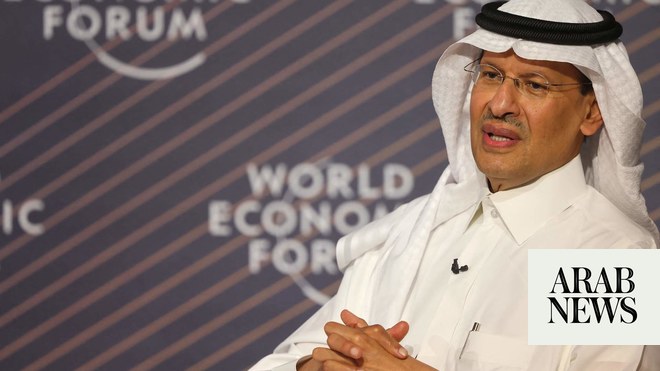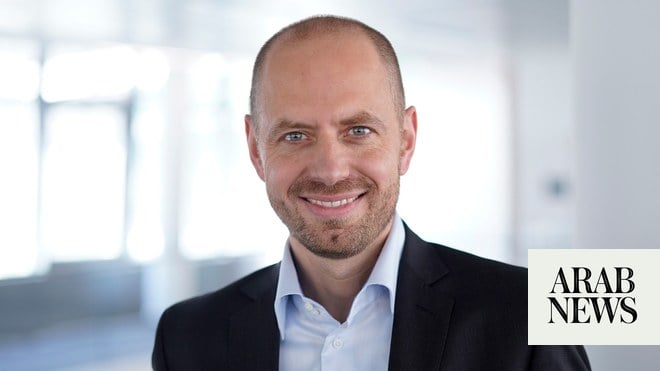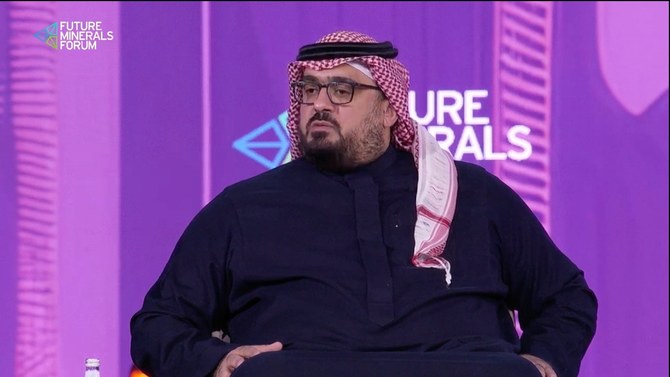
JEDDAH: Saudi Arabia intends to be a world leader in efforts to improve the planet through the use of more sustainable and environmentally friendly energy initiatives, according to Minister of Energy Prince Abdul Aziz bin Salman.
Speaking during “Don’t Forget Our Planet,” a virtual event organized by the Future Investment Initiative, he said that the Kingdom will play a pioneering role in movements such as solar energy and the circular carbon economy — a new approach to fossil-fuel emissions and greenhouse gasses in which the “four Rs” will apply: reduce, reuse, recycle and remove — to alleviate environmental damage and revitalize the planet.
Saudi Arabia holds the presidency of the G20 this year, and will host the annual summit in Riyadh in November. The prince said that the platform and status that comes with this honor is being used to promote CCE as a worthy common goal not only for the nation, but the entire world.
“We believe that CCE is an excellent enabler for maintaining our sustainability, and it also mitigates environmental issues,” he said.
“It’s an excellent solution that will attend to all of these concerns: to bring growth and economic prosperity, mitigate energy poverty and enable 2.6 billion people that don’t have the means to cook, bring electricity to 850 million people devoid of any (source of) electricity, and attend to the issue of plastic and how to make it more usable, and mitigating food packaging without the need to cut trees.”
Prince Abdul Aziz pledged that the Kingdom will lead by example in achieving these green goals.
“We have a serious efficiency program when it comes to domestic consumption of electricity,” he added. “By 2030, 50 percent of our electricity will come from renewables, and the other 50 percent will come from hydrocarbon gas. It will be the most efficient power sector in the whole world — and I’m willing to lay money on that.”
The minister also teased a new solar-power project, to be revealed very soon, which he believes will be a global leader in terms of cost. In addition, he predicted that within 50 years, the Kingdom will have the best hydrocarbon sustainability program on the planet.
“We’re not only producing electricity through solar power but also wind power, and we’ll be expanding on that,” he said. “We are breaking records and are willing to compete with a lot of people who claim they can do it better.”
The minister also addressed two key issues that are being discussed with world leaders as G20 initiatives: increasing global forestry levels, and improving coral life, both of which he said the Kingdom will commit to.
Prince Abdul Aziz, who was appointed minister of energy in September last year, said his first nine months in office have been challenging. His term began with an oil-supply crisis caused by the attacks on processing facilities in Abqaiq and Khurais, and in recent months he has been dealing with difficulties caused by the coronavirus crisis, and efforts to limit its effect.
“COVID-19 gives us the opportunity to live up to the challenge and be sure that while mitigating the impact of the virus itself, we still are adhering and attending to our sustainability objectives and growth,” he said.
The main objective of the FII conference was to agree sustainable recovery strategies and how they might improve the world. Yasir Al-Rumayyan, FII chairman and governor of the Saudi Public Investment Fund, said the aim was to find answers to pressing matters with a focus on sustainability, a goal he believes can be achieved if the public and private sectors work together.
“The importance of public-private partnerships to help drive a sustainable recovery cannot be overstated,” he said. “There is tremendous power in multiplying unique strengths and assets toward shared goals and mutual benefits.”
Jane Goodall, a renowned scientist and UN Messenger of Peace, talked about the importance of respecting nature and all living beings to avoid future health crises.
“(Scientists) have been predicting a pandemic like this for so long now,” she said. “It’s because of our disrespect for the environment and animals that this has come about.”
The wildlife advocate also recommended that the youth of the world be empowered and given a greater voice for change.
“We haven’t been borrowing the planet from our children, we have been stealing it,” she said. “If we get together with them, listen to them, empower them, help to fund some of their projects — they’re now planting millions of trees — then we can look forward to a much better world.”
French Secretary of State Brune Poirson said the world needs a modern-day, green version of the Marshall Plan, a reference to $15 billion aid initiative, spearheaded by US Secretary of State George C. Marshall, in 1948 to help rebuild Western Europe after the devastation of World War II. She added that the world needs to unite, without bias, to help ensure all countries have access to sustainable solutions.
The participants also sent messages and recommendations for change to the leaders of G20 nations.
Lord Adair Turner, chairman of Energy Transitions Commission, said: “We need massive investment in green electrification, strong investment in building and energy efficiency, and investment in the key technologies needed for the future in order to dramatically accelerate the pace of progress.”
The fourth annual meeting of the Future Investment Initiative is due to be held in Riyadh in October. The theme will be “response to the imperative of the re-energizing of the global economy through the collective sustainable action.” Since its launch 2017, the initiative has emerged as a leading global investment platform.












